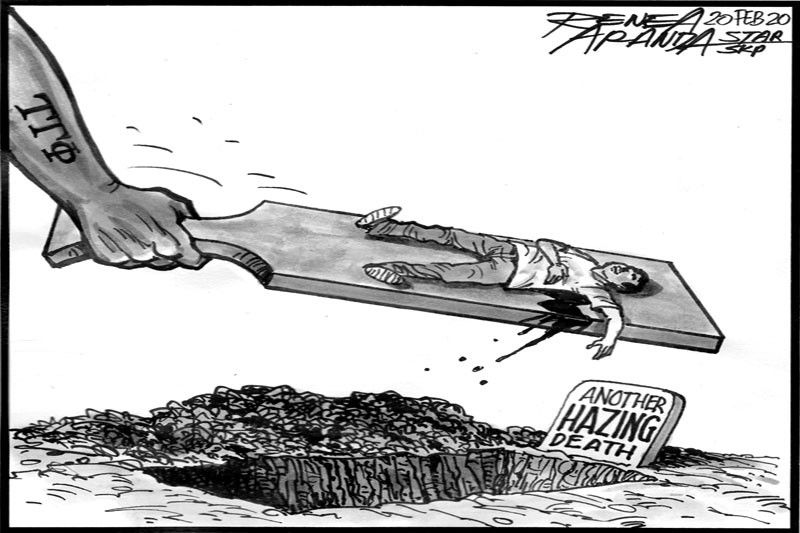EDITORIAL - Undeterred

After the passage of new legislation plus all the multimedia publicity, you’d think fraternities would think twice, even a hundred times, before engaging in violent initiation rites.
And yet, just over three months after a fourth class cadet at the Philippine National Police Academy landed in the hospital due to hazing, a 23-year-old criminology student has died in Bulan town, Sorsogon, allegedly at the hands of members of the Tau Gamma Phi fraternity.
Omer Despabiladera, a student at the Solis Institute of Technology, died Sunday from severe beating in different parts of the body. Another fraternity neophyte is still hospitalized from what probers believe are hazing injuries.
The Sorsogon police said about 20 people are facing investigation for the hazing. The two men who brought Despabiladera to the hospital were taken into police custody as persons of interest in the killing, but the two were released yesterday.
Congress passed a law against hazing after Ateneo de Manila law student Leonardo Villa died in initiation rites conducted by the Aquila Legis fraternity in 1991. Villa was a victim twice over – of hazing and the country’s compromised justice system. His accused killers were either cleared or received a mere slap on the wrist; most went on to become lawyers, and some even entered government service. The law that was passed after his death, Republic Act 8049 or the Anti-Hazing Act of 1995, even effectively allowed hazing, as long as the rites were cleared with certain authorities.
Little wonder that in 2017, University of Santo Tomas law student Horacio Castillo III died in hazing rites of the Aegis Juris fraternity. His bereaved relatives are still waiting for justice. Remedial legislation passed after his death, RA 11053, finally prohibited hazing and other violent initiation rites by fraternities, sororities and similar groups. RA 11053 also holds accountable and even criminally liable school authorities, fraternity leaders, even parents and the owners of premises where hazing rites are conducted. The law imposes the maximum penalty of life in prison and a fine of up to P3 million.
Perhaps the fact that an act is illegal enhances the appeal of hazing for youths. The weakness of the justice system surely reinforces this mindset. There is a law against hazing that should be fully enforced if it is to serve as a deterrent. Only the certainty of punishment will put an end to this deadly violence perpetrated by individuals with a perverted sense of brotherhood.
- Latest
- Trending



























